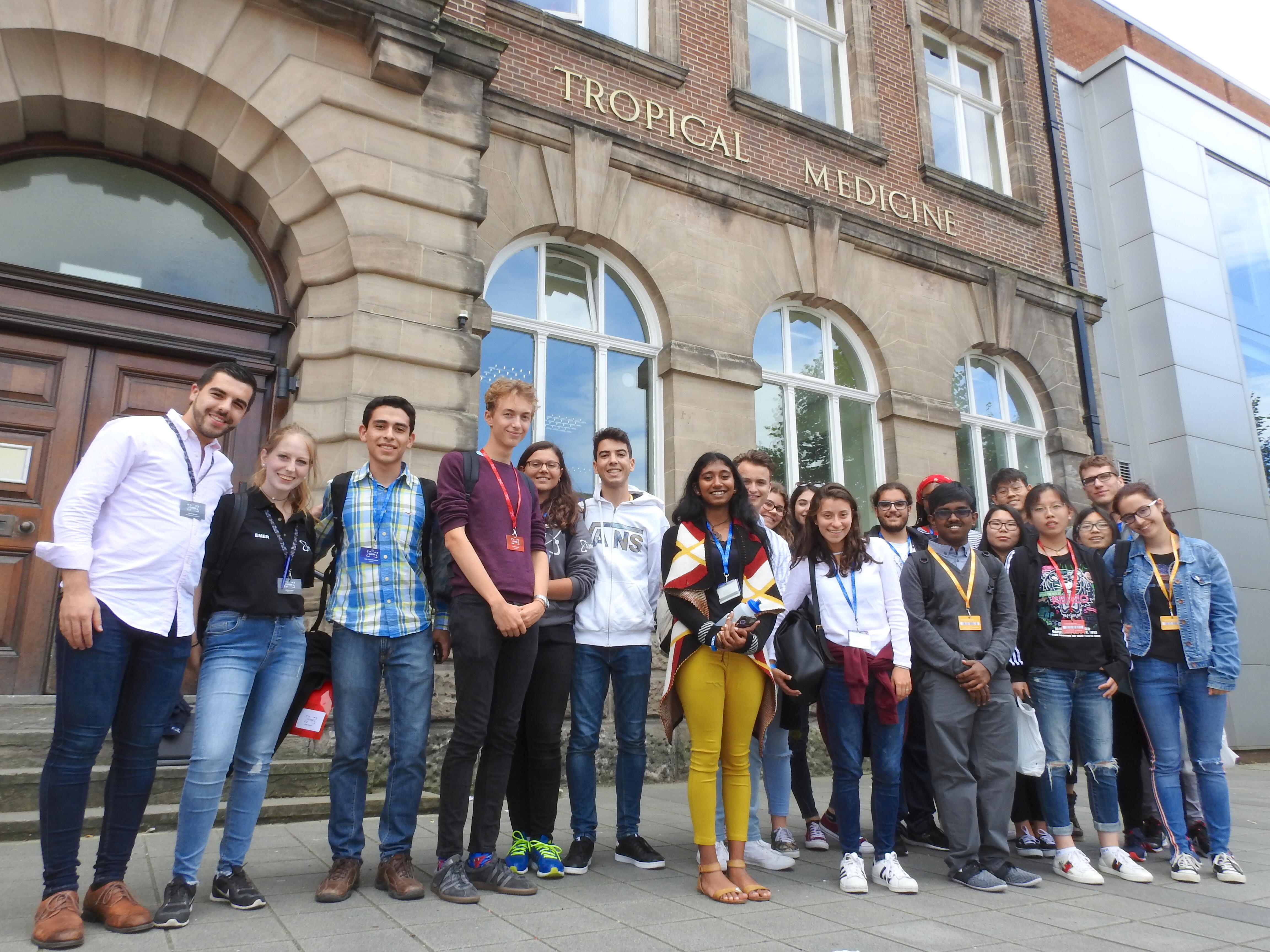
LSTM has played host to delegation from the London International Youth Science Forum (LIYSF) as 19 students aged between 16-21 years old were welcomed by LSTM’s Professor Robert Harrison.
This is the 60th year of the conference which attracts the world’s best science students from over 75 countries to the two-week residential event held at Imperial College London. It offers the students an opportunity to visit different universities and departments that are of particular interest to them and their studies.
On arriving at LSTM, the students were split into two groups to facilitate tours, looking at some of LSTM’s unique and cutting-edge research. They were offered a tour of the mosquito behavioural facility as well a look at the Liverpool Insect Testing Establishment (LITE) which works with industrial partners to test new insecticide products on susceptible and resistant mosquito colonies. Before lunch they were offered a tour of Dr Gareth Lycett’s insectary, were he works to genetically modify mosquitoes so that he is better able to understand how they become resistant to insecticide.
Following lunch Professor Harrison showed the students around the Alister Reid Venom Research Unit, which he heads, to see a venom extraction and to better understand the problems associated with tropical snakebite. The unit holds the largest number of venomous snakes for research anywhere in Europe and regularly extract venom to produce antivenom and carry out research to make treatment for snakebite more affordable and effective.
The group then toured LSTM learning about its historical links to the shipping industry and its continuing links to industry in order to further its mission of bringing relief to people in disease endemic countries. Professor Harrison said: “It is always a pleasure to welcome engaged and interested young people to LSTM. It is rewarding to be able to answer their questions about the work that we do and help them to understand the huge scope of scientific careers open to them should they wish to continue their studies at post graduate level.”